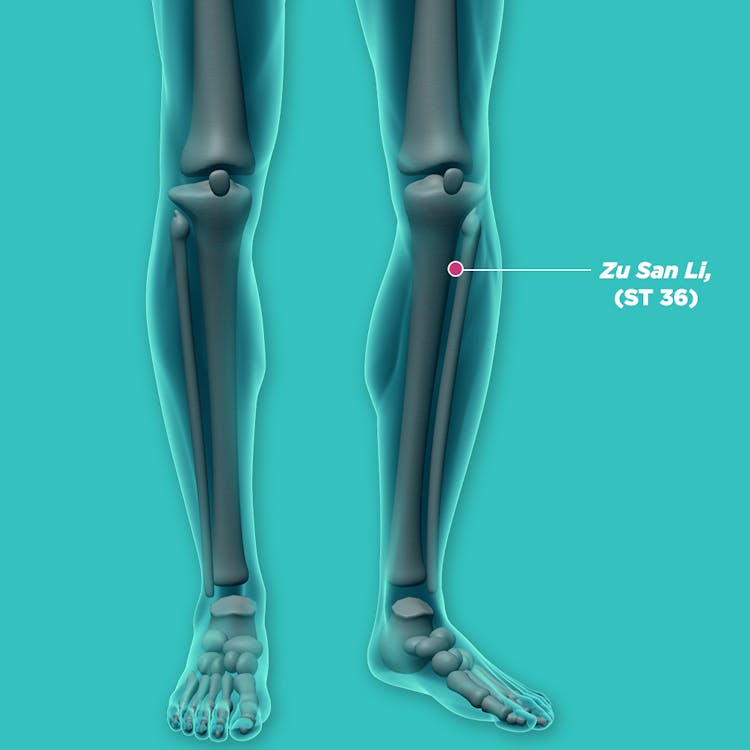What’s Causing Your Food Intolerance?
Published | 7 min read
Although not as serious as a food allergy, food intolerance can be just as unpleasant. Learn how to determine the difference between food intolerance and food allergies here.

Many people experience symptoms of food
It’s hard to tell the difference between food intolerance and a food allergy. However, there are a few key factors to watch out for.
In this guide, our experts explain what food intolerance is. We’ll also discuss how it’s different than a food allergy and what you can do to remedy your symptoms.
Difference Between Food Intolerance And Food Allergies
Food allergies involve an immune response from within your own body against a particular substance found in your food. On the other hand, food intolerances happen when your body is unable to properly break down food.
While food intolerance can make you feel miserable, it is usually not life-threatening in the way that food allergies can be.
What is a food allergy?

A food allergy occurs when your body thinks a particular substance in your food is a harmful intruder. It will then instigate an immune response to expel the substance.
An allergic reaction to food is immediate. It can involve the skin, the gastrointestinal tract, the respiratory tract, the central nervous system, and the cardiovascular system.
Food skin allergy symptoms may include eczema, hives, or urticaria, which is when the skin is red and raised. Usually, there is also itching and swelling of the face including around the mouth, nose, and eyes.
In some cases, the symptoms are similar to food intolerance symptoms, such as vomiting, diarrhea, and abdominal cramps. An allergic reaction can be very serious when your system goes into shock, called anaphylaxis. This includes a severe narrowing of your airways.
The most common food allergens include egg (especially egg white), cow’s milk, gluten in wheat, tree nuts, fish, shellfish, and peanuts. We still don’t know why some people develop certain food allergies.
Although, we do know that allergies typically begin in early childhood and progress into adult life. Research also indicates that if you have a relative with food allergies, you are also more likely to develop one.
What is food intolerance?
Sometimes your body is unable to appropriately break down certain foods. This could be due to missing certain enzymes (which could be hereditary) or having sensitivity to certain food preservatives or additives.
Unlike food allergies, which can be triggered by even the smallest amount of the allergen, food intolerance usually occurs when a certain amount of the substance has been ingested.
Common substances that are known to cause food intolerance include:
- Lactose (found in milk)
- Histamines (found in dairy products like cheese and yogurt, bananas, pineapples, avocados, chocolate, and wine)
- Gluten (the protein that makes bread stretchy and spongy)
Symptoms may include bloating, gas, diarrhea, constipation, abdominal tightness, vomiting, and nausea. Some people can also get headaches or in some cases suffer from migraines because of their food intolerance.
Doctors and the medical community do not understand food intolerances well. However, they are less serious and not life-threatening compared to food allergies.
From this perspective, we’re still unsure why some people develop food intolerances.
What Does TCM Say About Food Intolerance?
In Traditional Chinese Medicine (TCM), much of the framework for understanding illnesses leverages the thousands of years of human experience in eating foods and observing their reactions to them. As with Western medicine, TCM recognizes that a minority of people do have certain reactions to certain foods.
TCM literature meticulously recorded food allergies and categorized certain foods as “stimulating foods.” These can further compromise a body with a weak immune system.
“This is based on TCM ideology that sufficient healthy qi means pathogens are less likely to invade the body with a strong immune system and vice versa,” explains TCM Physician Chu I Ta. TCM Physician Vong U Chan echoes this explanation by sharing that when the qi in our digestive organs is low, we are unable to process foods optimally.
The
“For example, today’s lifestyle which favors rich and heavy foods results in excess phlegm and dampness. Also, spending more time indoors and moving less results in weakness of the lungs and kidneys. That can trap phlegm and dampness inside the body,” Physician Chu elaborates.
“When we talk about food allergies in TCM, we are referring to Wind and heat syndromes. However, excess Fire in the body invigorates the Wind, leading to skin allergies like redness, patches, and hives. These usually happen as a reaction to consuming spicy foods, seafood, and foods high in animal protein.”
Tips For Dealing With Food Intolerances And Allergies

For both food allergies and intolerances, it is of course best to avoid the offending foods altogether. But food labeling is not always perfect, and complete avoidance is likely to be impossible. So you should still come up with a strategy in case you’ve ingested something your body does not agree with.
Work with your healthcare professional to test for food allergies. As allergies could be severe, sending your body into anaphylactic shock. Also, maintain a food diary to keep track of what you eat and what reactions you have to the foods. Take note of how soon they appear as well.
Medications and supplements
Vitamin D and zinc, for example, are involved in optimal immune responses, while prebiotics and
There are also many TCM remedies known to boost immunity, helping with food allergies and intolerances. The Astragalus porridge, for example, strengthens the spleen’s digestive powers as well as improves lung qi.
Ginseng chicken soup helps strengthen immunity and fight fatigue. For those who prefer tea, Ganoderma-Perilla tea, containing Ganoderma Lingzhi, perilla leaf, and Poria helps to expel cold and Wind in the body. They can also prevent cold and flu. Lingzhi is another common TCM herb used in formulations to help strengthen the immune system and restore balance in the digestive system.
Acupuncture
Meanwhile, acupuncture can help with food allergy symptoms. Acupoints including Zu San Li (ST36), Tian Shu (ST25), Guan Yuan (CV4), and San Yin Jiao (SP6) can control asthma and asthma-related inflammation, which is like an allergic reaction.
Both food allergies and food intolerances can negatively impact your quality of life when they get out of hand. Some food allergies can even have life-threatening consequences.
A healthy diet, regular and sufficient exercise, along with quality rest and managing stress all help build and maintain an optimally functioning body including a robust immune system. Fortunately, you can learn to manage these conditions using natural remedies, without necessarily resorting only to drugs and medicines.
References
- Better Health Channel, Department of Health, State Government of Victoria, Australia. 2017. Food allergy and intolerance.
- American Academy of Allergy, Asthma, and Immunology. 2020. Food Intolerance Versus Food Allergy.
- Allergy Asthma Network. What is the Allergic March.
- American College of Allergy, Asthma, and Immunology. Food Allergy.
- Frontiers in Immunology. 2020. A Comprehensive Review on Natural Bioactive Compounds and Probiotics as Potential Therapeutics in Food Allergy Treatment.
- Allergo Journal International. 2014. Acupuncture in allergic rhinitis: A Mini-Revie
- Nutrients, Multidisciplinary Digital Publishing Institute. 2017. The Role of Nutritional Aspects in Food Allergy: Prevention and Management.
Share this article on










